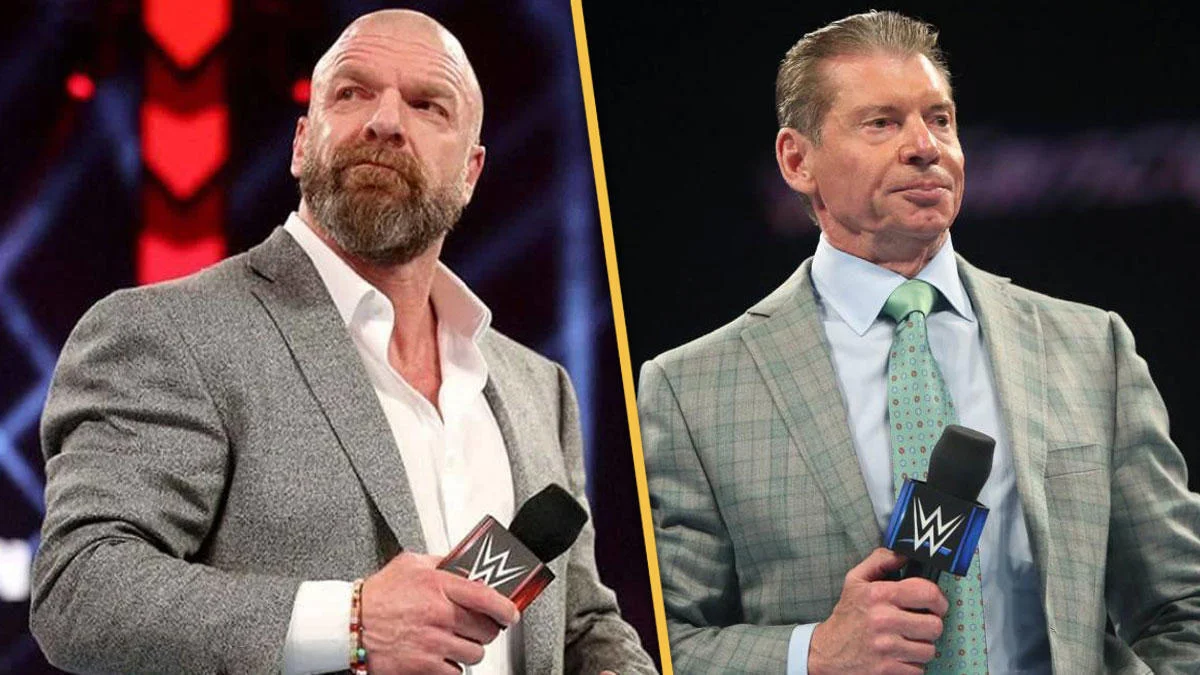
On a recent edition of the “Busted Open Radio” podcast, WWE Hall of Famer Bully Ray discussed the differences in management styles of Vince McMahon and his son-in-law Paul “Triple H” Levesque.
You can check out some highlights from the podcast below:
On not interacting with Vince McMahon as much backstage compared to Triple H: “You really didn’t talk with Vince, and when your match was over back in the day, you came back through Gorilla you didn’t go to Vince. If he liked it, he threw you a thumbs up. You knew you were good. There was not a lot of interaction with Vince.”
On how McMahon would seek you out if he wanted to talk to you: “We never went up to Vince and shook his hand. Business was business, if Vince wanted to talk to you, he would seek you out. There wasn’t much interaction between Vince and the boys.”
On how Triple H would directly communicate with stars at WrestleMania 40: “It almost seems like Hunter was doing something Heyman did: speaking to everybody after the match was over. He’s talking up his guys, which I think means more to the talent than anything else. Hunter is very much involved with every single talent in one way, shape, or form, and that goes a long way with the boys.”
In the world of professional wrestling, Vince McMahon is a name that needs no introduction. As the chairman and CEO of WWE, McMahon has been at the helm of the company for decades, shaping it into the global phenomenon that it is today. However, there is another influential figure in WWE who has been making his mark behind the scenes – Paul “Triple H” Levesque, McMahon’s son-in-law and the Executive Vice President of Global Talent Strategy & Development for WWE.
Recently, on the “Busted Open Radio” podcast, WWE Hall of Famer Bully Ray discussed the differences in management styles between Vince McMahon and Triple H. Ray shed light on how the two men interact with the talent and their overall approach to running the company.
One of the key differences highlighted by Ray is the level of interaction between McMahon and the wrestlers backstage. According to Ray, during his time in WWE, there was not much direct communication with McMahon. After a match, wrestlers would come back through Gorilla, the area behind the curtain, and if McMahon liked their performance, he would simply give them a thumbs up. This lack of interaction with McMahon created a sense of distance between him and the talent.
On the other hand, Triple H takes a more hands-on approach when it comes to engaging with the wrestlers. Ray mentioned that Triple H would directly communicate with the stars after their matches at WrestleMania 40. This personal touch meant a lot to the talent as it showed that Triple H was invested in their success. By speaking to each wrestler individually and offering praise or feedback, Triple H demonstrated his commitment to nurturing and supporting the talent.
Ray also drew parallels between Triple H’s approach and that of Paul Heyman, a renowned wrestling promoter and creative mind. Heyman was known for his ability to connect with wrestlers on a personal level and motivate them to give their best performances. By adopting a similar style, Triple H is able to build strong relationships with the talent and create an environment where they feel valued and supported.
The differences in management styles between McMahon and Triple H reflect their respective positions within the company. McMahon, as the CEO, has numerous responsibilities and may not have the time or inclination to interact extensively with every wrestler. On the other hand, Triple H’s role as the head of talent development allows him to focus more on individual performers and their growth within WWE.
It is important to note that both McMahon and Triple H have played integral roles in shaping WWE’s success. McMahon’s vision and business acumen have propelled the company to new heights, while Triple H’s dedication to talent development has helped nurture the next generation of WWE Superstars. Their contrasting management styles complement each other and contribute to the overall success of the company.
In conclusion, the differences in management styles between Vince McMahon and Triple H offer a fascinating insight into the inner workings of WWE. While McMahon’s approach may be more hands-off, Triple H’s hands-on involvement with the talent demonstrates his commitment to their success. Both men have played pivotal roles in shaping WWE’s past, present, and future, and their unique styles contribute to the dynamic nature of the company.
